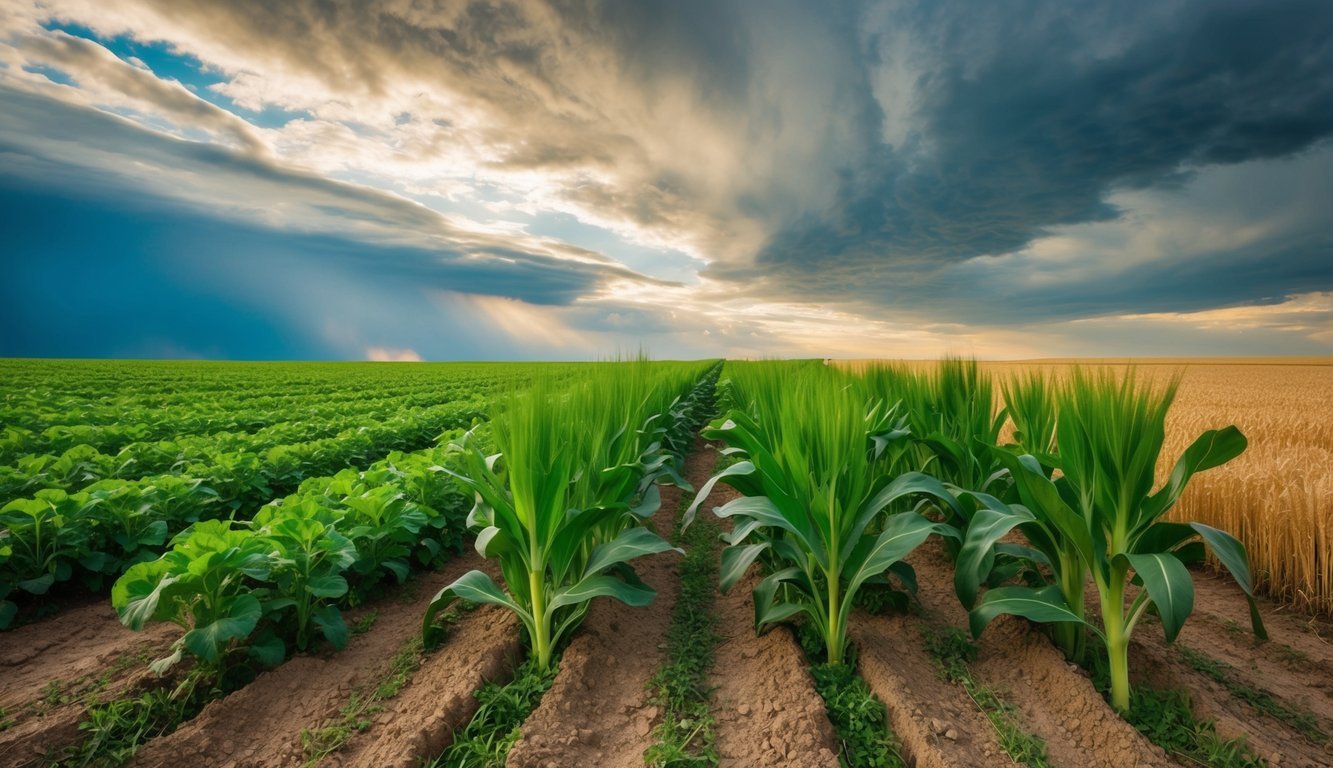
Human activities are raising atmospheric carbon dioxide (CO2) levels, leading to an increase in global temperatures that pose a direct threat to agricultural productivity.
Alarmed by these developments, researchers at Banaras Hindu University in India decided to delve into how climate change affects food security and crop yields.
Mathematical Modeling of Climate Impact
In a recent study published in the journal Chaos by AIP Publishing, the team crafted a mathematical model to dissect the complex and chaotic interactions between CO2 emissions, temperature changes, human population growth, and crop output.
Recognizing the unpredictable nature of ecological systems, they utilized both autonomous and nonautonomous models to gain insight into seasonal patterns and evaluate strategies for mitigation, including breeding crops that can thrive in higher temperatures.
The researchers studied the delicate dynamics involving rising CO2 levels, temperature spikes, population increases, and their repercussions on agricultural output.
They noted that while higher CO2 concentrations can initially promote crop growth—thanks to the ‘CO2 fertilization effect’—extreme heat can induce stress that ultimately reduces yields.
Thresholds and Crop Resilience
Their analysis highlighted the intricate web connecting climate variables to agricultural performance.
The team emphasized the critical balance needed to maintain productivity, discovering that there is a significant threshold for CO2 emissions.
Once this threshold is crossed, crop yields can sharply decline, with different crop varieties responding in unique ways to these climatic changes.
With their findings underscoring the urgent need to curtail CO2 emissions to protect food production, the researchers proposed a proactive approach to combat potential crop losses: developing heat-resistant cultivars.
Breeding or genetically modifying crops to withstand higher temperatures will be vital for farmers navigating the challenges of an increasingly warm environment.
Future Directions for Research
The study also revealed that even minor increases in temperature could have a dramatic impact on crop yields.
This stark reality calls for the implementation of climate-adaptive agricultural practices to ensure food security as the planet warms.
By identifying critical temperature limits, the research aims to assist policymakers in understanding when intervention may be necessary to avert yield declines.
It stresses the importance of breeding initiatives aimed at generating temperature-tolerant crops that could help maintain agricultural stability despite soaring CO2 levels.
Grasping the unpredictable behaviors of agricultural systems is essential for improving crop yield predictions and developing adaptive strategies in response to variations in climate and seasonal conditions.
Looking ahead, the research team plans to refine their model by including additional factors, such as pest populations, water availability, soil health, and nutrient levels, all of which are crucial to crop production in the face of climate challenges.
To enhance the model’s accuracy and applicability to specific regions, gathering real-world data will be vital.
This information will lead to tailored predictions and more effective agricultural strategies, equipping farmers to better cope with the ever-evolving challenges posed by climate change.
Source: ScienceDaily

